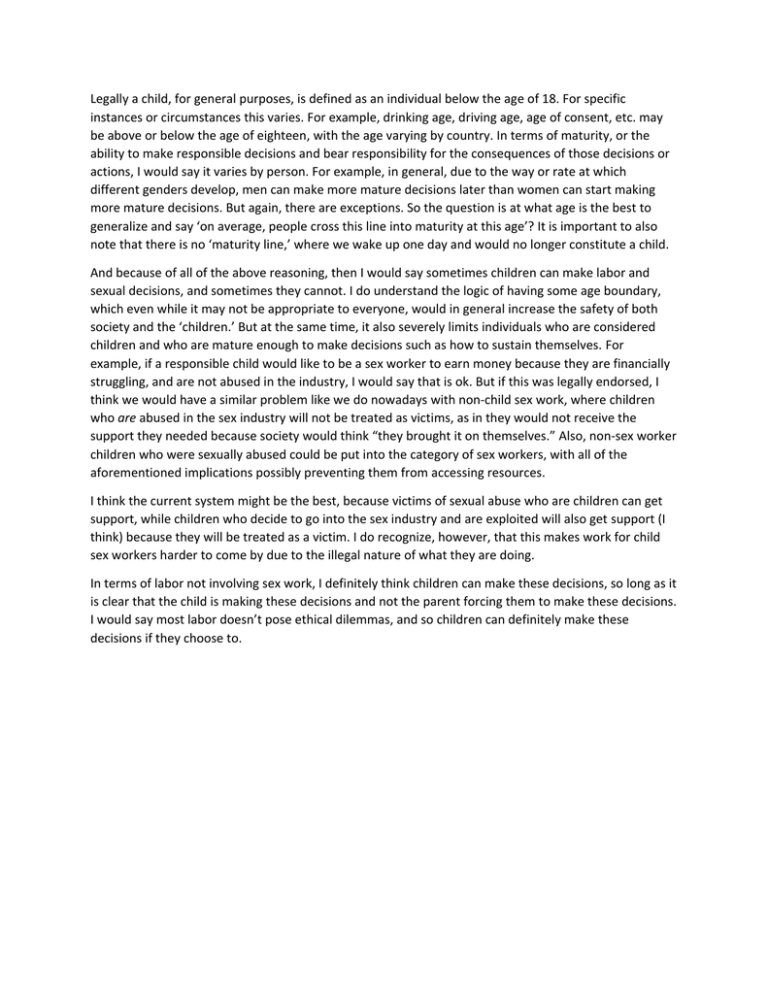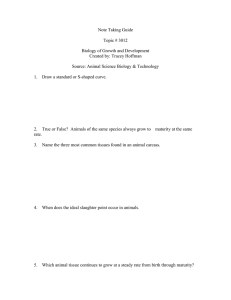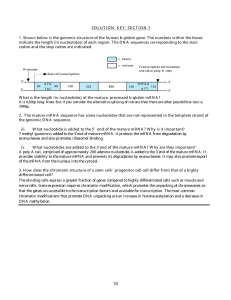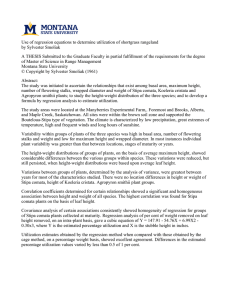
Legally a child, for general purposes, is defined as an individual below the age of 18. For specific
instances or circumstances this varies. For example, drinking age, driving age, age of consent, etc. may
be above or below the age of eighteen, with the age varying by country. In terms of maturity, or the
ability to make responsible decisions and bear responsibility for the consequences of those decisions or
actions, I would say it varies by person. For example, in general, due to the way or rate at which
different genders develop, men can make more mature decisions later than women can start making
more mature decisions. But again, there are exceptions. So the question is at what age is the best to
generalize and say ‘on average, people cross this line into maturity at this age’? It is important to also
note that there is no ‘maturity line,’ where we wake up one day and would no longer constitute a child.
And because of all of the above reasoning, then I would say sometimes children can make labor and
sexual decisions, and sometimes they cannot. I do understand the logic of having some age boundary,
which even while it may not be appropriate to everyone, would in general increase the safety of both
society and the ‘children.’ But at the same time, it also severely limits individuals who are considered
children and who are mature enough to make decisions such as how to sustain themselves. For
example, if a responsible child would like to be a sex worker to earn money because they are financially
struggling, and are not abused in the industry, I would say that is ok. But if this was legally endorsed, I
think we would have a similar problem like we do nowadays with non-child sex work, where children
who are abused in the sex industry will not be treated as victims, as in they would not receive the
support they needed because society would think “they brought it on themselves.” Also, non-sex worker
children who were sexually abused could be put into the category of sex workers, with all of the
aforementioned implications possibly preventing them from accessing resources.
I think the current system might be the best, because victims of sexual abuse who are children can get
support, while children who decide to go into the sex industry and are exploited will also get support (I
think) because they will be treated as a victim. I do recognize, however, that this makes work for child
sex workers harder to come by due to the illegal nature of what they are doing.
In terms of labor not involving sex work, I definitely think children can make these decisions, so long as it
is clear that the child is making these decisions and not the parent forcing them to make these decisions.
I would say most labor doesn’t pose ethical dilemmas, and so children can definitely make these
decisions if they choose to.
MIT OpenCourseWare
http://ocw.mit.edu
21A.445J / WGS.272J Slavery and Human Trafficking in the 21st Century
Spring 2015
For information about citing these materials or our Terms of Use, visit: http://ocw.mit.edu/terms.








